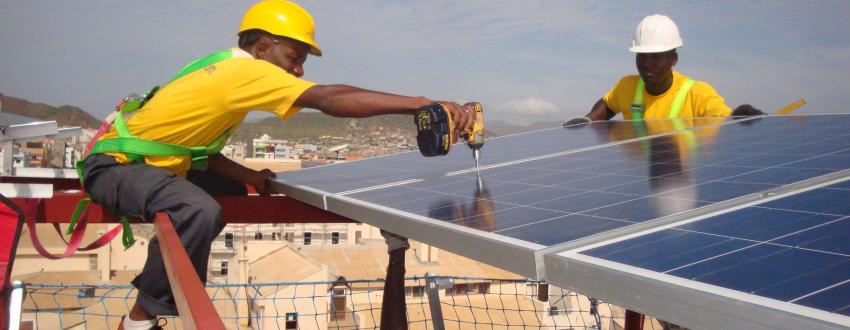Solar energy quality infrastructure for East & West Africa and Pacific islands

8 May 2023 – Quality infrastructure has become a critical success factor for the uptake of solar energy technology markets in many developing countries, particularly in least developed countries (LDCs) and small island developing states (SIDS).
Solar product and service quality standards build trust among consumers, suppliers and financiers regarding the performance, durability and safety of solar energy systems. The long-term sustainability and maintenance of installations requires sound business models and qualified local solar personal and businesses.
However, in many LDCs and SIDS the control of imported solar PV and solar thermal products is lacking and the market is exposed to low-quality imports. A particular challenge are system faults due to low-quality installations by uncertified personal.
Incorrect installation, often due to minor errors such as loose screws or incorrectly inserted connectors, can thus have devastating effects on system performance and financial returns. Studies identified that, throughout the world, installation faults were the cause of more than 50% of serious defects in PV plants.
Quality standards and local qualification schemes and testing infrastructure are also an important prerequisite for an inclusive energy transition, generating domestic jobs and revenues for solar entrepreneurs.
To these challenges, the International Solar Alliance (ISA) and the United Nations Industrial Development Organization (UNIDO), with funding of the Government of France, are partnering on the establishment of an International Network of Solar Technology and Application Resource Centres (STAR C). The overall objective is to enhance regional solar energy quality infrastructure frameworks in ISA member states. The first phase of the STAR C project will focus on the Economic Community of West African States (ECOWAS), the East African Community (EAC) and the Pacific Community (SPC). The initiative is implemented under the umbrella for the Global Network of Regional Sustainable Energy Centres (GN-SEC).
Through the harmonisation of standards and certification, the STAR C work will contribute to increased regional mobility of certified solar energy businesses and workforce, as well as trade of products.
By Martin Lugmayr, Industrial Development Expert / GN-SEC Coordinator, UNIDO
